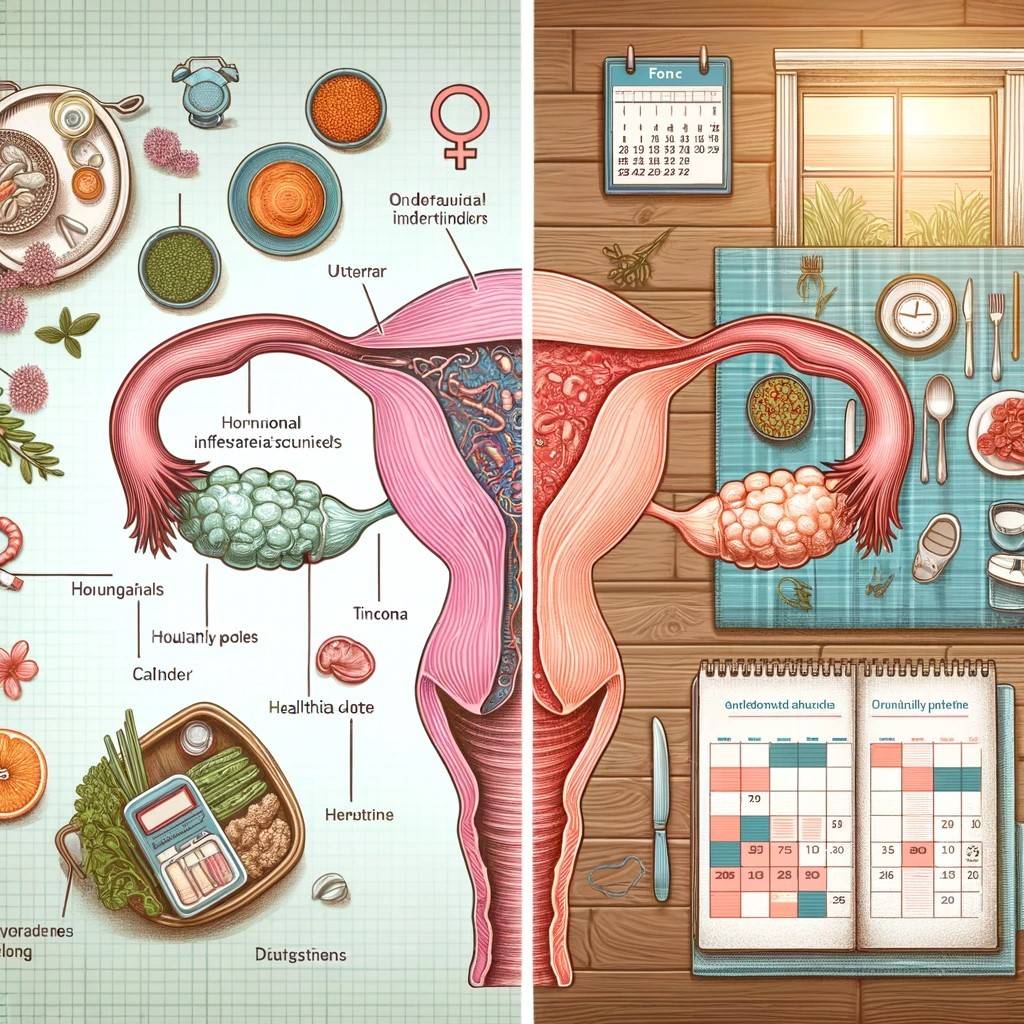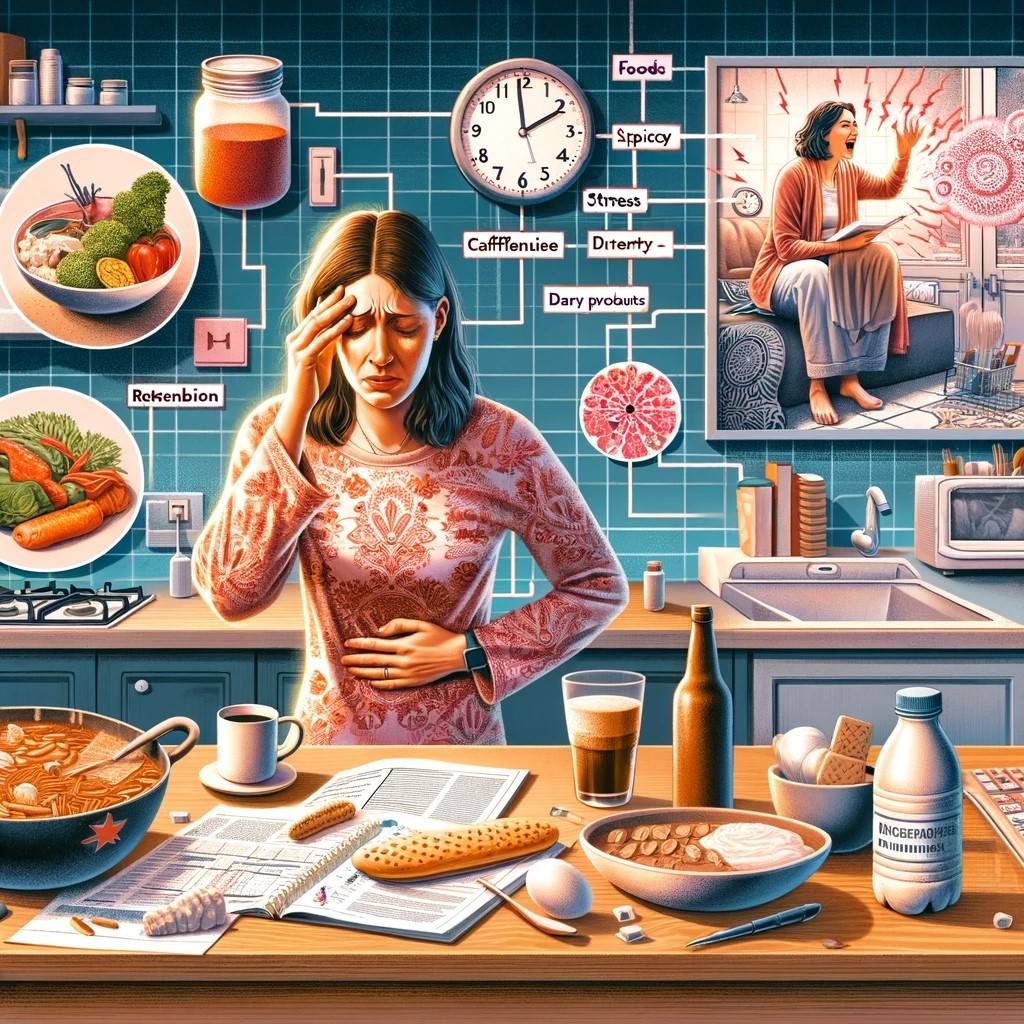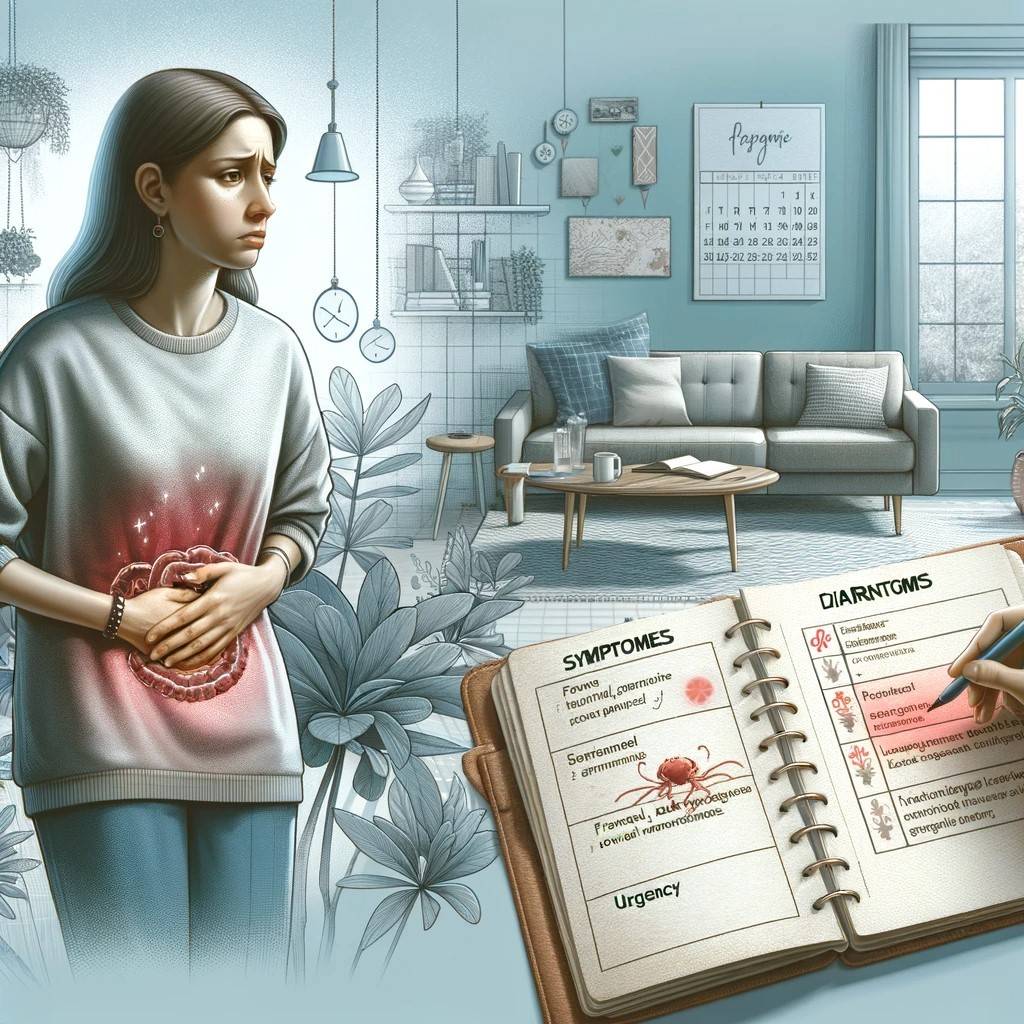Empower your comfort with a woman’s guide on How to Stop Diarrhea on Period. Find relief and reclaim your well-being with effective strategies.
Introduction
Understanding and managing diarrhea during menstruation is a significant concern for many women. This comprehensive guide is dedicated to exploring various aspects of how to stop diarrhea on period, offering practical strategies and insights to ease this monthly discomfort.
Understanding Diarrhea During Menstrual Periods

Hormonal Changes and Digestive Impact
Menstrual cycles cause hormonal fluctuations, particularly in progesterone and estrogen, affecting the digestive system. This can slow down or speed up bowel movements, leading to diarrhea. Learning how to stop diarrhea during the period starts with understanding these hormonal influences.
Prostaglandins and Their Role
Prostaglandins are vital in causing the uterus to contract and shed its lining, which is essential for menstruation. However, an excess can affect bowel movements, often resulting in diarrhea.
Facts to Know
- Approximately 73% of women experience gastrointestinal symptoms, including diarrhea, during their menstrual cycle.
- Prostaglandins are also responsible for other period symptoms like nausea and headaches.
Common Triggers of Menstrual Diarrhea

- Dietary Factors: Identifying and avoiding trigger foods is a crucial step in how to stop diarrhea on period. Common culprits include spicy foods, caffeine, and dairy.
- Stress and Anxiety: Emotional stress can significantly affect your digestive system.
- Physical Changes: Bloating and water retention during menstruation can contribute to altered bowel movements.
Tip: A food and symptom diary can be invaluable in pinpointing specific triggers.
Symptoms and Diagnosis for How to Stop Diarrhea on Period

Identifying Symptoms
The key to knowing how to stop diarrhea on period is first recognizing it. Symptoms include frequent, loose bowel movements, abdominal cramping, and urgency.
When to See a Doctor
Severe or unusual symptoms, such as bloody stools or prolonged diarrhea, should prompt a visit to a healthcare provider.
Diagnosis Methods
Doctors might inquire about your menstrual cycle, diet, and stress levels and may conduct tests to rule out other conditions.
Preventive Measures for Menstrual Diarrhea

Dietary Changes
Fiber-rich foods can regulate bowel movements, and reducing intake of known triggers can effectively stop diarrhea over period.
Importance of Hydration
Adequate fluid intake is crucial. It compensates for fluid loss and can alleviate symptoms.
Lifestyle Adjustments
Exercise and stress management can improve overall menstrual health.
Did You Know?
Proper hydration helps with diarrhea and reduces urinary tract infection risks, which are higher during menstruation.
Home Remedies for Relief of Diarrhea in Period

- Herbal Teas: Natural remedies like peppermint and ginger tea can soothe the digestive system.
- Probiotics: Incorporating probiotics through foods or supplements can maintain healthy gut flora.
- Balanced Diet: Small, frequent meals are easier on your digestive system.
Quote
“Hippocrates once said, ‘Let food be thy medicine and medicine be thy food,’ a principle that holds in managing menstrual diarrhea.”
Over-the-counter Medications
Safe OTC Options
Medications like loperamide can provide short-term relief for diarrhea during periods.
Usage Tips
Follow dosage instructions and consider any existing health conditions.
Precautions
Consult a doctor before using OTC medications for extended periods.
When to Seek Medical Help on How to Stop Diarrhea on Period
Recognizing Severe Symptoms
Persistent, severe symptoms or signs of dehydration necessitate medical attention.
Conditions Requiring Specialized Treatment
Endometriosis, inflammatory bowel disease, and irritable bowel syndrome are conditions with overlapping symptoms that require professional care.
Importance of Regular Check-Ups
Regular gynecological exams aid in the early detection and management of menstrual-related issues.
Long-Term Management Strategies
- Lifestyle Modifications: Regular exercise, yoga, and meditation can positively affect menstrual health.
- Stress Management: Techniques like deep breathing or cognitive-behavioural therapy can be beneficial.
- Menstrual Health Monitoring: Tracking your menstrual cycle and symptoms can help anticipate and manage diarrhea.
Myths and Misconceptions
Myth
“Diarrhea during periods is abnormal and indicative of a serious health issue.
Fact
While uncomfortable, menstrual-related diarrhea is often a normal physiological response.
Conclusion on How to Stop Diarrhea on Period
In conclusion, understanding how to stop diarrhea on period involves a blend of dietary, lifestyle, and sometimes medicinal approaches. Personal experiences vary, so finding what works best for you is crucial. Remember, for severe or persistent symptoms, professional medical advice is essential.
FAQs about How to Stop Diarrhea on Period.
Here are common frequently asked questions about How to Stop Diarrhea on Period and the best answers:
What can I take to stop period diarrhea?
To stop diarrhea during your period, you might consider over-the-counter (OTC) medications like loperamide (Imodium). These can be effective for quick relief. However, looking into natural remedies such as probiotic-rich foods (like yogurt) and herbal teas (like ginger or peppermint) is also beneficial. Staying hydrated and making dietary adjustments (like reducing spicy foods and caffeine) can also help manage these symptoms.
Is it normal to have diarrhea during your period?
Yes, it’s normal to experience diarrhea during your period. This is often because of hormonal changes, significantly increasing prostaglandins, which cause uterine contractions and can also affect your digestive system. While it’s common, if you’re experiencing severe or prolonged diarrhea, it’s advisable to consult a healthcare professional.
What can I take to stop period poops?
To manage period poops, which often include diarrhea, consider a two-pronged approach: dietary changes and possibly OTC medications. Incorporating fiber-rich foods into your diet can help regulate bowel movements. For immediate relief, OTC anti-diarrheal medications like loperamide can be used. Also, reduce stress and increase your intake of fluids to help ease symptoms.
Could you tell me why do lose during my period?
Feeling ‘loose,’ especially regarding bowel movements, is typically because of the increased levels of prostaglandins during your menstrual cycle. These chemicals, which help your uterus contract to shed its lining, can also lead to looser stools and even diarrhea. Additionally, hormonal fluctuations can affect your digestive system’s speed and efficiency, contributing to this sensation.
Is it reasonable to have a watery period?
If by ‘watery period’ you mean a menstrual flow that seems more liquid than usual, it can be a normal variation. However, if there’s a significant change in the consistency of your period or you’re experiencing a hefty flow, it could be a sign of an underlying condition, and it would be an idea to discuss this with your healthcare provider.
What is the heaviest day of your period?
The heaviest day of your period typically occurs within the first few days of menstruation. For most women, the second or third day is when the flow is at its peak. This can vary from person to person; some might experience their heaviest flow at the beginning or even toward the end of their period. It’s all about understanding your cycle and what’s normal for you.



